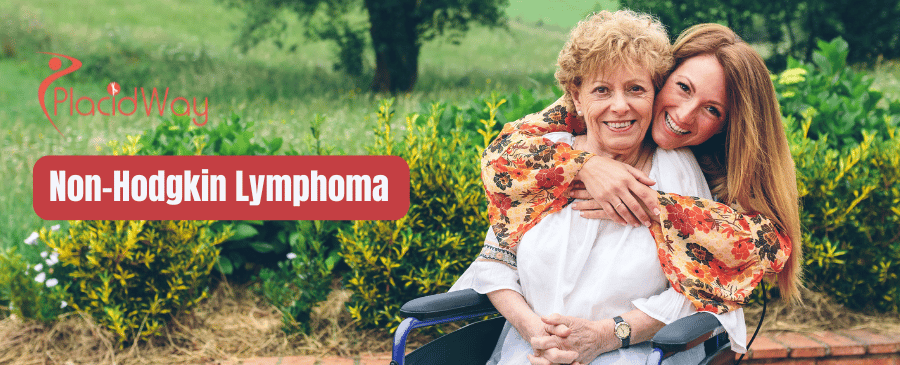
Non-Hodgkin lymphoma (NHL) is a type of cancer that originates in the lymphatic system, which is a part of the body's immune system. It is characterized by the abnormal proliferation of lymphocytes, a type of white blood cell, leading to the formation of tumors in lymph nodes and other organs.
While traditional treatments such as chemotherapy, radiation therapy, and targeted therapy have been effective for many patients with NHL, some individuals may experience relapse or become refractory to these treatments. In recent years, CAR-T Cell Therapy has emerged as a promising approach for the treatment of relapsed or refractory NHL, offering new hope for patients facing this challenging disease.
Best Hospitals for CAR-T Cell Therapy in China |
|
|
|
|
CAR-T cell therapy for NHL involves the following key steps:
T cells, a type of white blood cell, are collected from the patient's blood through leukapheresis. The collected T cells are genetically modified in the laboratory to express chimeric antigen receptors (CARs) on their surface.
CARs are synthetic receptors designed to recognize a specific protein (antigen) expressed on the surface of NHL cells, such as CD19 or CD20. The genetically modified CAR-T cells are cultured and expanded in the laboratory to increase their numbers before being infused back into the patient's bloodstream.
Once infused, CAR-T cells target and bind to NHL cells expressing the corresponding antigen, leading to their destruction.
Patients with the following characteristics may be considered suitable candidates for CAR-T cell therapy for NHL:
CAR-T cell therapy offers several potential benefits for patients with relapsed or refractory NHL:
The process of CAR-T cell therapy for NHL typically involves the following steps. Patients undergo a comprehensive evaluation, including medical history, diagnostic tests, and imaging studies, to assess their eligibility for CAR-T cell therapy.
T cells are collected from the patient's blood through leukapheresis and transported to a specialized laboratory for genetic modification. The collected T cells are genetically modified to express CARs targeting the specific antigen present on NHL cells.
The modified CAR-T cells are cultured and expanded in the laboratory to generate a sufficient quantity for infusion. Some patients may receive lymphodepleting chemotherapy before CAR-T cell infusion to enhance the therapy's efficacy.
The expanded CAR-T cells are infused back into the patient's bloodstream, typically in a single infusion. Patients are closely monitored after CAR-T cell infusion for potential side effects and treatment response. Follow-up appointments are scheduled to assess treatment efficacy and manage any adverse events.
The cost of CAR-T cell therapy for NHL can be substantial and varies based on factors such as the specific CAR-T cell product used, the complexity of the procedure, and the healthcare facility's location. As a personalized and cutting-edge form of cancer treatment, CAR-T cell therapy may cost hundreds of thousands of dollars or more. Patients are advised to discuss the anticipated costs, potential insurance coverage, and available financial assistance options with their healthcare providers.
CAR-T cell therapy for NHL is typically performed by a multidisciplinary team of healthcare professionals, including:
Before undergoing CAR-T cell therapy for NHL, individuals should consider the following key points:
Patients and their caregivers should receive detailed information about CAR-T cell therapy, including its mechanism of action, potential side effects, and expected outcomes, to make informed decisions.
Understand that CAR-T cell therapy may not be suitable for all patients or cancer types, and treatment outcomes can vary from person to person. Be aware of potential side effects associated with CAR-T cell therapy, including cytokine release syndrome (CRS), neurologic toxicity, and immune-related adverse events.
Patients should adhere to recommended follow-up appointments and monitoring schedules to assess treatment response and manage any adverse events effectively.
CAR-T cell therapy represents a promising treatment option for patients with relapsed or refractory non-Hodgkin lymphoma, offering new avenues for achieving durable remissions and improved outcomes. By understanding the principles behind CAR-T cell therapy, identifying suitable candidates, recognizing its potential benefits, comprehending the treatment process, considering associated costs, acknowledging the healthcare professionals involved, and being aware of key considerations, individuals can approach CAR-T cell therapy with informed decision-making and a proactive stance toward their non-Hodgkin lymphoma journey.
If you're considering CAR-T cell therapy for non-Hodgkin lymphoma, consult with reputable healthcare providers specializing in cellular immunotherapy to explore your treatment options and make empowered decisions for your cancer care.
CAR-T Cell Therapy | Chimeric Antigen Receptor T-Cell